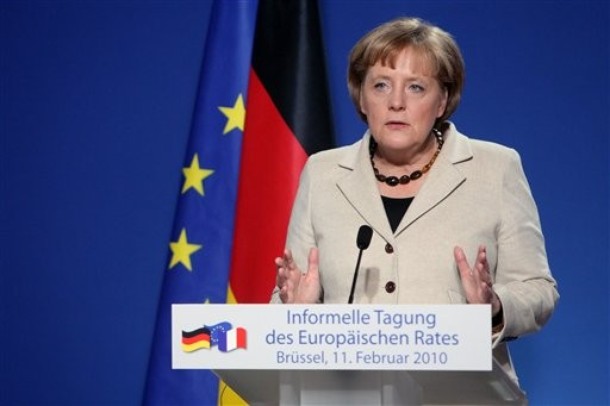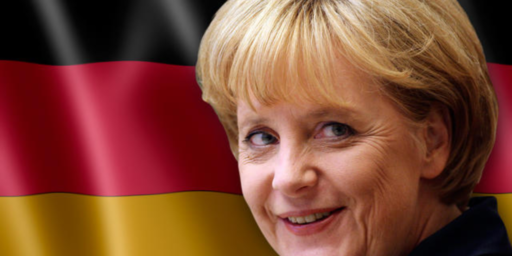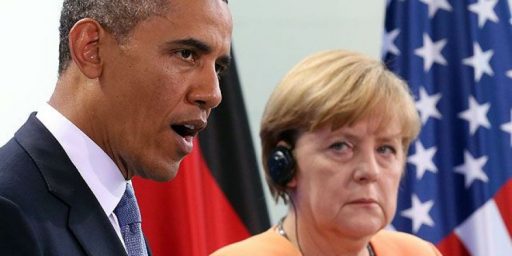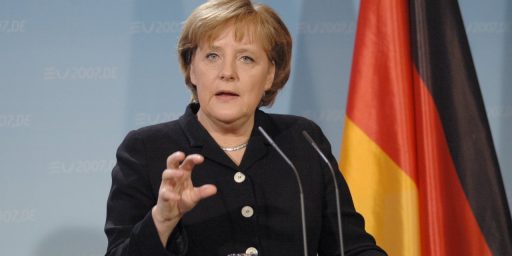Euro Fate Rests in German Hands
The unfolding Euro crisis has raised a new variant on the old German Question. For much of its history as a state, Germany has been the pivotal state in Europe. After the Cold War and the reunification of East and West, the fate of “Europe” as a unified political and economic space depended entirely on Germany’s willingness to let go of the vaunted Deutsche Mark. Now, the fate of the Euro — and arguably the EU — rests on Angela Merkel.
In my New Atlanticist post, “The (New) German Question,” I round up the most salient recent commentary on the matter and conclude on a skeptical note.
Citing Henry Farrell‘s observation that if the Greek rescue fails, “so too will the euro project,” I observe,
The hope of fans of a united Europe is that the Germans will come to the same conclusion and decide that failure is not an option. That is, after all, what Merkel did with the financial crisis — ultimately approving the German stimulus package that she’d spent months fighting against.
But will she feel the same pressure to swallow her principles for Europe? Let alone for Greece? With 70 percent of her own voters opposed? It’s by no means certain.
Much more at the link.
AP Photo/Geert Vanden Wijngaert







I can’t help but wonder if France and Germany are starting to get cold feet about the whole EU thing. I suspect it’s not working out the way they expected.
It was supposed to subsidize French farmers and German workers. However, when French farmers and German workers start subsidizing the Portuguese, Irish, and Greek workers we may see political repercussions in France and Germany.
I think that’s right. One of my constant themes is that, despite the pretense, ain’t no such thing as “Europe.”
In fairness there was no such thing as a united states for quite a while. In any event the euro system will almost certainly survive.
Europeans, especially the Germans and French who lost so many in both world wars, have very recent events to remind them of the price of failure. A politically and economically united Europe is supposed to prevent the kind of things which happened in previous centuries with regularity. I think the Germans and French will realize that there is really no alternative to an integrated Europe now that the US is no longer around to keep the peace.
Maybe. But they’re already subsidizing Polish farmers (the Common Agricultural Policy), so it’s not that big of a step for them.
James-Think this could affect NATO? Does anyone really see Russia invading anymore? I have absolutely no feel about how the Germans will handle this, but suspect it will have longer lasting consequences.
Steve
Keep in mind we are talking about a measly 50 billion here.
I think the EU can handle it. We dole more than that nearly each month in deficit spending.